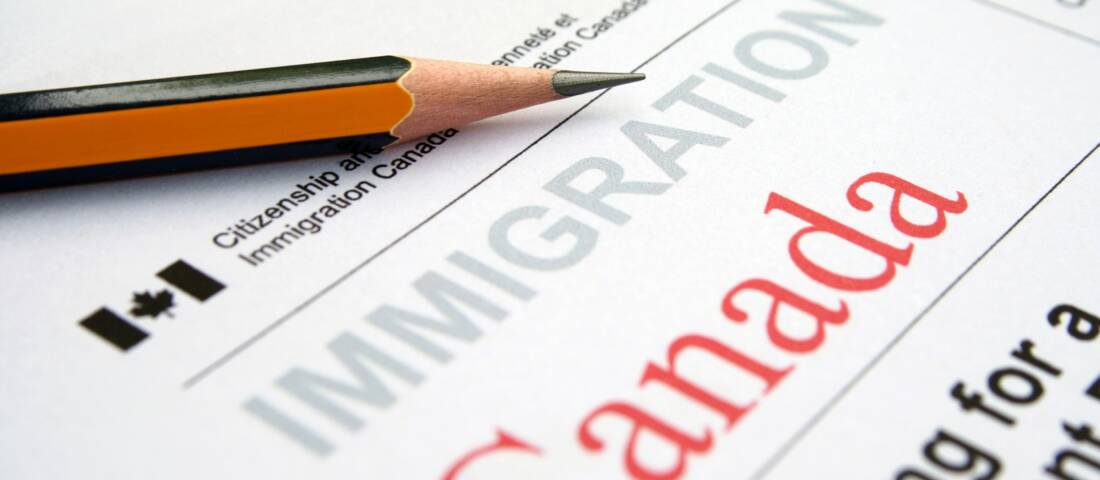Being apart from your loved ones can make even the most exciting immigration journey feel incomplete. Whether it's a spouse, child or parent, distance affects your plans and your peace of mind.
Canada’s family sponsorship program is one of the most effective ways to reunite families. However, recent changes have made the process harder to navigate, with new income rules, stricter documentation, and tighter timelines.
In this guide, we break down how family sponsorship in Canada works, what’s changed in 2025, and how you can build a strong application that helps reunite your family and start your next chapter together.
Understanding Family Sponsorship in Canada
Family sponsorship is one of Canada’s most valued immigration programs. It allows citizens and permanent residents to bring close family members to live with them in Canada as permanent residents.
Sponsored family members gain permanent resident status, which means access to healthcare, education, and the freedom to live and work anywhere in Canada.
There are three main groups you can sponsor:
- Spouses, common-law or conjugal partners
- Dependent children, including adopted children
- Parents and grandparents
However, each category has its own rules, timelines, and documentation requirements. So, getting it right truly matters.
What You Need to Know About Spousal Sponsorship
Spousal sponsorship remains one of the most common and effective paths to permanent residence in Canada. If you're legally married, in a common-law relationship, or a committed long-distance partnership, you may be eligible to sponsor your partner.
There are two types of applications:
- Inland sponsorship, for couples already living together in Canada. Your partner may be eligible for an open work permit while the application is processed.
- Outland sponsorship, for couples living apart or when the sponsored partner lives outside Canada. This may offer more flexibility for travel during the processing period.
To qualify, your relationship must be genuine and well-documented. IRCC has raised its standards in 2025, requesting more detailed evidence like shared finances, communication history, and proof of cohabitation or long-term connection.
If you’ve been married recently or met online, it’s still possible, but you’ll need to show how your relationship developed and how you plan to live together in Canada. Missteps or missing documents can delay or derail your application, so careful preparation is key.
Sponsoring Dependent Children
Canada allows citizens and permanent residents to sponsor their biological or adopted children, as long as they qualify as dependents.
A dependent child is:
- Under the age of 22 and not married or in a common-law relationship
- Over 22 but has depended on their parent for financial support due to a physical or mental condition
In 2025, IRCC clarified that children applying for permanent residence must maintain their dependent status throughout the process. If a child turns 22 or marries before the application is finalized, they may lose eligibility unless certain exceptions apply.
Processing times can vary depending on where the child is living, so it’s important to gather documents early and plan ahead. You’ll need proof of relationship, birth or adoption records and in some cases, written consent from the other parent.
Can you Sponsor Parents and Grandparents?
Yes, you can sponsor your parents and grandparents, but it’s one of the most competitive and complex family immigration streams in Canada.
The Parents and Grandparents Program helps parents and grandparents of permanent residents and Canadian citizens obtain legal status. If approved, they’ll receive full PR benefits, including healthcare, the ability to live and work in Canada and a path to citizenship.
Here’s what you need to know:
- You must meet minimum income requirements for the past 3 tax years (updated annually by IRCC)
- You’ll need to sign an undertaking to financially support them for 20 years
- The program works by invitation only through an annual lottery system
- In 2025, Canada reduced the number of invitations, making demand even higher
If your parents aren’t selected, they can still apply for the Super Visa, which allows them to stay in Canada for up to 5 years at a time, with renewals possible. It doesn’t offer permanent residence, but it’s a valuable option for extended family visits.
Key Family Sponsor Requirements You Can’t Ignore
Before you bring a loved one to Canada through family sponsorship, you need to meet specific legal and financial requirements. These rules are non-negotiable and missing even one can delay or block your application.
To sponsor a family member, you must:
- Be at least 18 years old
- Be a Canadian citizen or permanent resident living in Canada (or planning to return when your family arrives)
- Not receiving social assistance for reasons other than a disability
- Be able to financially support your sponsored family member
- Sign a binding undertaking agreement with the federal government
The length of that undertaking depends on who you’re sponsoring:
- Spouse or partner: 3 years
- Dependent child: 10 years or until the child turns 22
- Parent or grandparent: 20 years
Meeting the requirements is one thing. Proving you meet them is where experience matters most.
What’s New in 2025 Family Sponsorship
Canadian family sponsorship saw several immigration policy changes in 2025 that affected planning, eligibility, and processing:
1. Parents and Grandparents Program
No new intake forms are being accepted this year. Instead, invitations are pulled from the 2020 pool, with a limit of 10,000 applications. Processing may now take up to 24 months (or longer in Quebec).
2. Maintained Status Rule Changes
If a family sponsorship applicant leaves Canada while their extension is in “processing”, they may lose maintained status. This directly impacts in-Canada applicants awaiting sponsorship decisions.
3. Updated Spousal Work Permit Rules
Only spouses of workers in certain high-demand occupations now qualify for open work permits. This limits eligibility under the spousal sponsorship stream for families relying on dual income.
4. Super Visa Flexibility
For parents and grandparents using the Super Visa, approved insurance can now be sourced internationally, which makes extended stays in Canada more accessible.
How to Maximize Your Odds of Approval
Family sponsorship is a powerful pathway, but it’s not automatic. Even strong applications can be delayed or denied if you miss key details.
The good news is that with the right preparation, you can dramatically increase your chances of approval and avoid costly setbacks. Here’s how to give your application the best possible start:
1. Gather Strong Proof of Relationship
Whether sponsoring a spouse, child, or parent, your relationship must be clearly documented. For spousal sponsorships, include photos, communication logs, joint finances, and travel records. The more comprehensive, the better.
2. Show Financial Stability
While spouses and dependent children don’t require a specific income level, sponsors must not be on social assistance (unless disabled) and must show financial readiness. Parent and grandparent sponsors must meet the Minimum Necessary Income (MNI) for three consecutive years.
3. Submit a Complete Application
One missing document or unchecked box can delay your application by months. Double-check everything — ID documents, translations, police clearances, and forms.
4. Respond Promptly to IRCC Requests
If IRCC contacts you for more information, answer quickly and completely. Delays in response can cause processing lags or even rejection.
5. Work With an Immigration Lawyer
Many applications are rejected due to avoidable mistakes. At Ackah Law, we guide you through each step to ensure your application is accurate, timely, and backed by strong supporting evidence.
Don’t Leave Family Sponsorship to Chance
Family sponsorship can be life-changing, but the rules are constantly evolving. From income tests to proof of relationship, even small errors can lead to big delays. That’s why thousands of families trust Ackah Law to guide them through this complex process with clarity and care.
We help build your case with strategy, foresight, and compassion, so you can focus on what matters most — reuniting with the people you love.
Book an initial call with our client engagement coordinators and let’s bring your family home, the right way.








